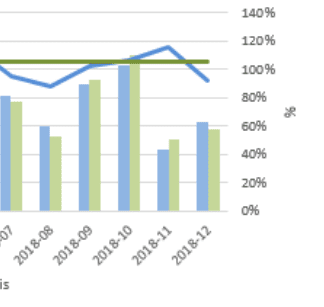Description
As a Manufacturing Manager, Will is responsible for overseeing the entire manufacturing process, from the acquisition of raw materials to the production and delivery of finished products. He coordinates with various departments, such as engineering, quality control, and logistics, to ensure that all manufacturing operations run smoothly and efficiently.
Who is Will?
Title: A Blueprint for Change
Meet Will Thompson, a 38-year-old Manufacturing Manager at a prominent automobile factory located in Detroit, Michigan. Will’s journey is an inspiring tale of determination, innovation, and personal growth.
Character Development:
Will grew up in a small rural town with a population of just over 3,000. His parents owned a local hardware store, and from a young age, Will developed a fascination with tools and machinery. He often spent hours tinkering with and repairing various appliances, earning him the nickname “Fix-It Will” among friends and family.
As a teenager, Will decided that his true passion lay in manufacturing and engineering. He moved to Detroit after high school to study at a prestigious university, where he pursued a degree in Industrial Engineering. Upon graduation, Will landed a job as a junior engineer at a renowned automobile factory, where he quickly proved his worth and climbed the ranks to become Manufacturing Manager.
Ambitions:
Will’s ambitions extend beyond his professional life; he is dedicated to giving back to his community and creating a positive impact on the environment. Recognizing the need for sustainable manufacturing practices, Will has set his sights on transforming the factory into a hub for green innovation.
- Green Manufacturing: Will believes in reducing waste and improving energy efficiency within the factory. He has implemented new processes to recycle and repurpose materials, as well as promoting the use of renewable energy sources.
- Community Outreach: Will is passionate about supporting the next generation of engineers and innovators. He has started a mentorship program for local students interested in manufacturing and engineering careers, providing them with hands-on experience and guidance.
- Industry Collaboration: Will wants to spearhead a movement for sustainable manufacturing practices throughout the automotive industry. He attends conferences, participates in panel discussions, and networks with industry leaders to promote cooperation and share best practices.
Journey Highlights:
Throughout his journey, Will faces numerous challenges and triumphs as he strives to achieve his ambitions.
- Overcoming Skepticism: Early in his career, Will encounters resistance from some colleagues who question the feasibility of his eco-friendly initiatives. Through perseverance and effective communication, Will gains their support and demonstrates the long-term benefits of sustainable practices.
- Creating a Culture Shift: As Manufacturing Manager, Will fosters an environment of continuous improvement and open-mindedness within the factory. He encourages his team to think creatively and collaborate on innovative solutions, leading to increased productivity and morale.
- Achieving Recognition: Will’s efforts to promote green manufacturing do not go unnoticed. The factory receives numerous awards and accolades for its eco-friendly practices, solidifying its reputation as an industry leader in sustainability.
Throughout his unique journey, Will Thompson remains dedicated to his ambitions of transforming the automotive manufacturing landscape while inspiring others to follow in his footsteps. His passion for innovation and commitment to positive change make him a true role model in both his professional and personal life.
FAQ
Q: What is the role of a Manufacturing Manager? A: The Manufacturing Manager is responsible for overseeing all aspects of the manufacturing process, from planning and scheduling to production and quality control. They ensure that all operations are running smoothly, efficiently, and effectively.
Q: What are the key skills required for a Manufacturing Manager? A: A Manufacturing Manager should possess strong leadership skills, the ability to manage and motivate a team, problem-solving skills, attention to detail, and excellent communication skills. They should also have knowledge of manufacturing processes, quality control procedures, and budgeting.
Q: What are the responsibilities of a Manufacturing Manager? A: The responsibilities of a Manufacturing Manager include creating production schedules, managing resources such as personnel and equipment, ensuring quality control standards are met, implementing and improving manufacturing processes, managing inventory and supply chains, and ensuring compliance with regulations.
Q: What are the challenges faced by a Manufacturing Manager? A: Manufacturing Managers face various challenges such as maintaining product quality, meeting production schedules, managing personnel effectively, implementing new technology, and staying up-to-date with industry regulations.
Q: What is the importance of quality control in manufacturing? A: Quality control is crucial in manufacturing as it ensures that products are consistent, meet customer expectations, and comply with regulatory standards. Poor quality control can result in costly defects, decreased customer satisfaction, and even legal liability.
Q: What is the significance of supply chain management in manufacturing? A: Supply chain management is important in manufacturing as it ensures that materials and resources are available for production, and finished goods are delivered to customers on time. Efficient supply chain management can help reduce costs, increase customer satisfaction, and improve overall efficiency.
Q: What are the benefits of implementing new technology in manufacturing? A: Implementing new technology in manufacturing can improve efficiency, increase productivity, reduce costs, and improve product quality. It can also help manufacturers stay competitive and adapt to changing market demands.
Q: What is lean manufacturing? A: Lean manufacturing is an approach to manufacturing that focuses on minimizing waste and maximizing efficiency. It involves identifying and eliminating non-value-adding activities and optimizing the flow of materials and resources.
Q: How can a Manufacturing Manager improve production efficiency? A: A Manufacturing Manager can improve production efficiency by implementing lean manufacturing practices, optimizing production schedules, improving supply chain management, and investing in new technology. They can also analyze production data to identify areas for improvement and implement process improvements accordingly.



